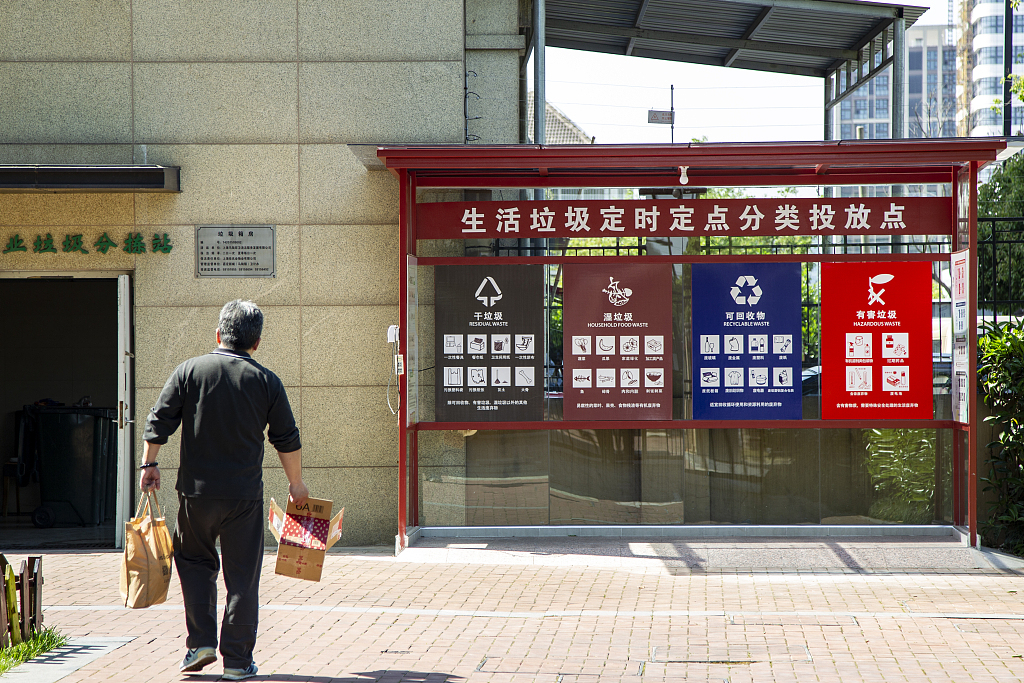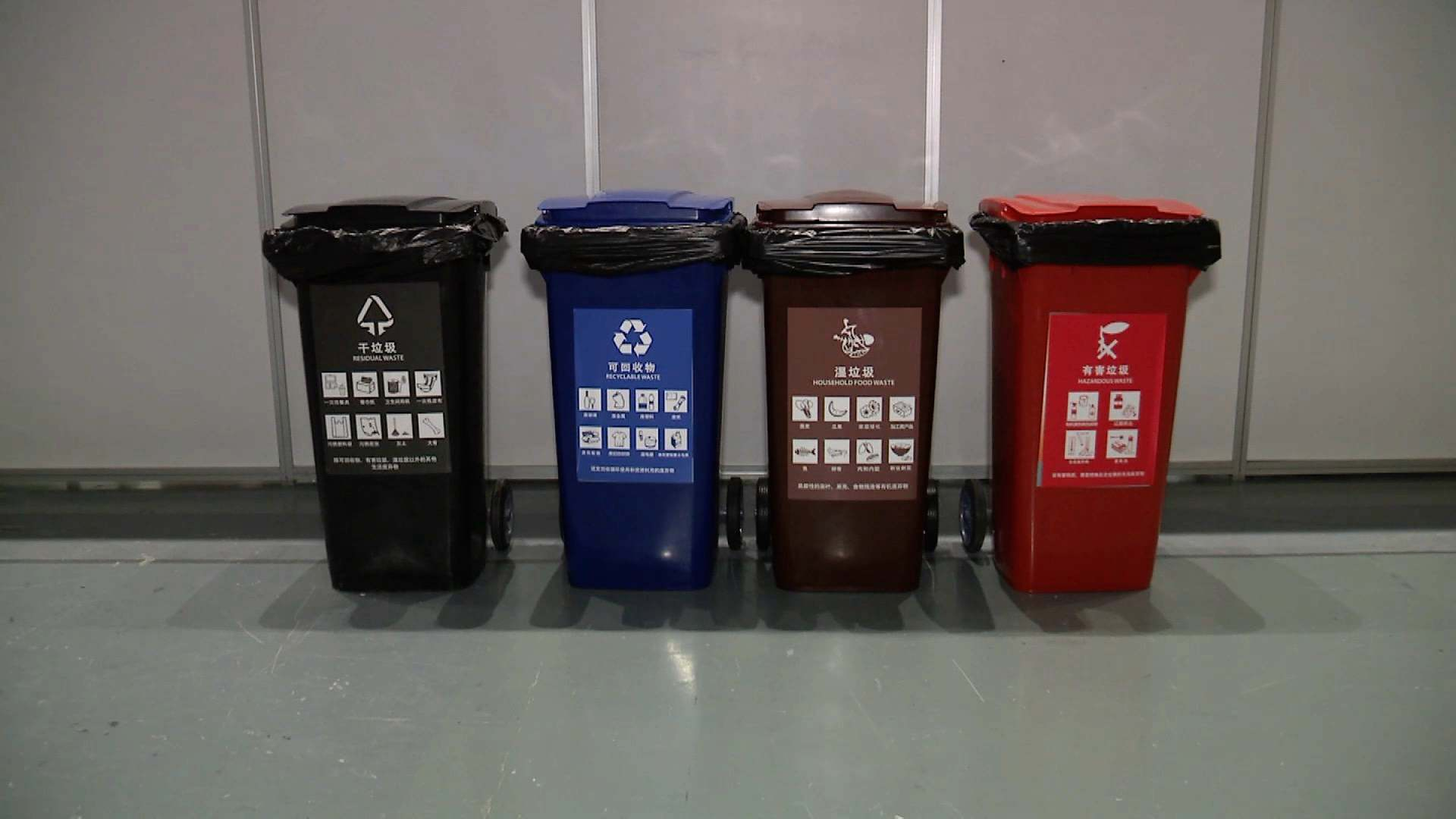
From the People's Daily app.
And this is Story in the Story.
Chinese cities at or above the prefecture level will start garbage sorting this year, according to an official circular.
The circular urged public institutions to lead by example and stressed the importance of education to raise people's awareness.
By the end of the year, all of the said cities must have compiled a plan to implement garbage sorting, said the circular jointly released by the Ministry of Housing and Urban-Rural Development with other eight authorities.
Public institutions in these cities must put into place a garbage sorting system by the end of 2020 and by 2025, all the cities at or above prefecture level, totaling more than 300, shall complete the building of a garbage sorting system.
Today's Story in the Story looks at what is being done in China to raise awareness of the need to sort garbage.

(Photo: CGTN)
Jiang Maifang, 77, recently started a new job. Living in a residential community in Jiading District of Shanghai, she signed up to be a volunteer at a waste collection point as soon as her neighborhood began implementing the garbage sorting system last October.
When it comes to tips for sorting garbage, Jiang is full of them.
"You should separate things that rot easily from the those that do not and sort out recyclables. Pots are good containers to store kitchen waste," Jiang always likes to share her experiences with neighbors.
"Even though I am older, I am still proud to do something for the good of the younger generations," said Jiang.
With the prevalence of smartphones, many cities in China, including Shanghai, have established a "green account" system. Each time a resident dumps garbage in compliance with regulations, they will collect a certain amount of "green points," which can be later used to exchange for living goods. The incentive system improved participation prominently, yet some residents still refuse to take part.
Yao Lili, a retired Math teacher who lives in the same neighborhood as Jiang, recalled that some neighbors leave their garbage unsorted because it is more convenient.
As a leader of the residential building, Yao tends to subtly arouse people's garbage sorting consciousness.
"Whenever I see the garbage bags downstairs, I roll up my sleeves and sort the garbage for them. Seeing this, people who leave their garbage will feel bad and vow to sort it themselves in the future," said Yao. "People may develop the habit of garbage sorting gradually."

(Photo: CGTN)
Shanghai is resolute to reform the urban environment by establishing municipal solid waste management systems. The public has realized that the reform is imperative.
With a permanent population of over 24 million and a floating one of about 5 to 6 million, Shanghai needs to dispose of up to 26,000 tons of garbage per day.
Shanghai published a set of regulations on household garbage sorting and recycling and announced that the regulations will be implemented as of July 1 this year.
The regulations have banned the use of disposable cups by Shanghai's Party and government organizations, disposable daily products provided by hotels and disposable cutlery from restaurants and food delivery services unless they are requested by customers.
Hotels and restaurants that fail to observe the regulations can be fined 500 yuan ($74.70) to 5,000 yuan. Residents who fail to sort the garbage can be fined 50 to 200 yuan.
"Garbage sorting management is relevant to people changing their habits, and it will be a long-term process. Some countries have worked decades or even longer on this endeavor," said Xiao Guiyu, deputy director of the Standing Committee of the Shanghai Municipal People's Congress. "It is a necessity to roll out regulations to promote garbage sorting among citizens."
Li Chao, head of the Landscaping and City Appearance Administrative Bureau of Jiading District, said that a mature disposal system is a prompt for residents to sort their garbage according to the categories.
After the regulations go into effect in Shanghai, Jiading will be under two-way supervision by both the government and residents.
"The government will supervise individuals' responsibilities of sorting garbage. On the other hand, residents are welcomed to supervise our work," said Li. "We have color-coded every garbage bin and garbage carrying vehicle by category in our district to help people sort the garbage."
Wang Menghui, minister of housing and urban-rural development, said the promotion of garbage sorting still faces problems in China, such as further improving people's awareness and addressing technical problems in some cities that impede garbage sorting.
(Produced by Nancy Yan Xu, Brian Lowe, Lance Crayon and Chelle Wenqian Zeng. Music by: bensound.com. Text from Global Times.)


